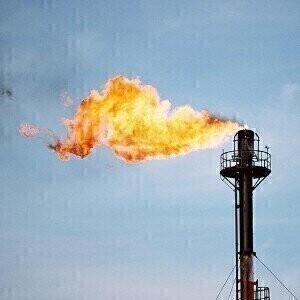Green Energy
Made Methane Capture Projects unlock Vast Amounts of New Supply While Lowering Overall Emissions
Dec 15 2022
Natural gas prices have reached record highs, making projects that capture and commercialize vented, fugitive, and flared methane increasingly economic, with the potential to unlock substantial new supplies of gas while reducing emissions, according to a new analysis by S&P Global Commodity Insights. The analysis examined six key regions and found that it is now economic to capture and commercialize more than 70% of the lost methane and flared gas from those areas, equivalent to 80 billion cubic meters of new supply. This could add 40 billion cubic meters of new supply to global markets within just 2-3 years, more than the total annual demand of France. Capturing and commercializing this gas would also reduce greenhouse gas emissions by over 750 million metric tons of CO2e, the equivalent of Germany's total annual emissions. Methane emissions are particularly critical to limit near-term warming because methane is a highly potent, short-lived climate pollutant.
The spike in global gas prices, which began in fall 2021 and was amplified by the conflict in Ukraine, has particularly enhanced the near-term economics for methane capture projects in regions that have access to the global gas market. For a methane capture project deployed next year, 10-year revenues are now expected to be 140-240% higher than they would have been prior to the price spike. Even as natural gas prices stabilize in the longer term, forecasted revenues remain elevated compared to pre-war price forecasts.
"The elevated price outlook for natural gas has created a substantial economic opportunity to capture flared gas and methane emissions, especially in the near term," said Eleonor Kramarz, Vice President of Energy Transition Consulting at S&P Global Commodity Insights. "While these opportunities will remain economic over the longer-term, the strongest incentives are for acting sooner rather than later when it comes to bringing new projects online."
Advancing methane and flare capture and commercialization projects benefit from well-established technologies that already exist at scale, meaning that there are few technological barriers to deployment. However, other impediments need to be overcome. The analysis identifies key barriers for each of the six target regions across four major categories - export capacity, capital availability, commercial and financing environment, and security risk - and lays out pathways that would enable projects to move forward.
"While the paths forward will be different in each region, there is a consistent need for clear project implementation roles, stronger collaboration between private and public organizations, and improved capital availability," said Ambassador Carlos Pascual, Senior Vice President of Global Energy and International Affairs at S&P Global Commodity Insights. "Overcoming these barriers will require governments, businesses, and financial institutions to work together to create the enabling conditions for these projects to advance."
Events
WEATHER • CLIMATE • WATER / EARTH OBSERVATIONS / GREEN ECONOMY
Oct 29 2024 St. Petersburg, Russia
Oct 30 2024 Hong Kong
Nov 05 2024 Toronto, Canada
Nov 06 2024 Ho Chi Minh City, Vietnam
Nov 12 2024 Valencia, Spain













